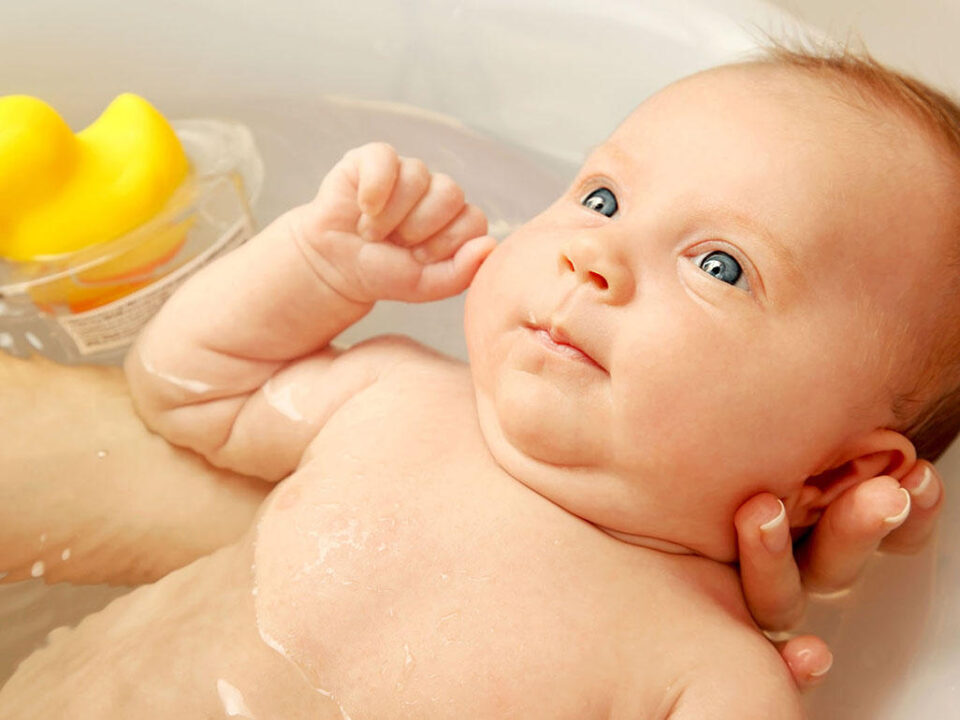Are you bathing your child for the first time? We understand how daunting it might seem. But with the proper foundation, it doesn’t have to be. Bath time is a great way to bond with your child. More so, it might help them relax before bedtime. To ensure your little one will enjoy their first bath, let’s begin with the basics.
Baby’s Scent: An Overview
According to a study by Johnson and Johnson, scent can affect babies in many ways. Because newborns still can’t fully see, they mostly rely on their sense of smell. Experts also found that scented baths result in a good night’s sleep. Notably, using lavender soap can help soothe and improve your baby’s mood.
When Is a Baby’s First Bath?
From the moment your child is born, their body will pick up microbial bacteria. While it might sound alarming, there is nothing to worry about. This process is crucial in building their immune system. So, for the first four weeks, a sponge bath is enough to keep your baby clean. It is also a practical choice to use cotton pads.
After a month, your baby will develop a natural skin barrier. It encourages the stump of their umbilical cord to dry and fall off. By this time, your little one is ready to have their first bath.
Bath Time Essentials
To make bath time a pleasant experience, be sure to gather these essential supplies before you start:
- A washcloth or a large towel
- A soft sponge and some baby wipes
- Cotton wool for sensitive areas
- Mild shampoo and moisturizing soap
- A fresh and clean set of clothes
Baby Bath Basics
From the baby experts of NHS, here are the basics for a fun baby bath time:
- Check the temperature to make sure it’s not too hot or too chilly.
- Place your baby on your knee and wash their hair gently.
- If your little one is over a month old, you can use baby soap.
- Focus on the areas that need a thorough cleaning. These parts include the genital area, skin creases, areas between the toes and fingers, and the back of the ears.
Taking Care of Your Baby’s Skin
Hard water contains high concentrations of calcium and magnesium ions. While it can affect everyone, it has more impact on babies’ skin. Skin concerns in babies are prevalent, especially when their baths involve harmful minerals. Aside from dryness, it can lead to other conditions such as eczema.
To protect your baby’s skin from the dangers of hard water, install a water softener. This filtration system can turn hard water into soft water, beneficial for the skin and hair of your little one. With soft water, soap lathers faster and rinses off more easily.
After-bath Tips
Drying
Drying your baby after their bath is also crucial. It would be best to wrap them immediately in a towel to prevent them from getting cold. Some parents prefer a hooded towel to provide that extra warmth. Avoid rubbing your baby’s skin. Instead, pat them gently until they are completely dry. Make sure not to leave wet areas as doing so can lead to skin irritation.
Moisturizing
After drying, you can use the opportunity to massage your newborn. This method will also encourage bonding with your child. Using a baby moisturizer or lotion, lightly lather and rub their body. Soft squeezes will also help their skin absorb the product faster.
How Often Do Babies Need to Bathe?
It’s not advisable to bathe your baby every day. Excessive baths can dry out their skin and increase sensitivity. Until your child becomes more mobile, bathing twice or thrice a week is enough.
If you want to make sure that your baby is clean, making thorough diaper changes will suffice. Focus on the parts that need attention, such as their diaper area, neck, and face.
When is the Best Time for a Baby Bath?
There is no definite time to do baby baths. Whether it’s in the morning or at nighttime, it’s all up to you. However, we suggest choosing a time that is free from interruptions. Bathing your baby should focus on you and your baby, so it should not feel like a rush.
It is also important to avoid bathing your baby when they’re hungry or tired. The same goes when they have just finished feeding. It might be an unpleasant experience for your baby to take a bath when they’re not yet ready.
Wrapping It Up
A baby’s skin is extremely sensitive, delicate, and vulnerable. It can easily absorb chemicals that can get into their bodies. So, it is best to use the right products to avoid any unwanted concerns.
Baby baths can be a nerve-wracking experience. But with enough practice, you’ll both feel more at ease. Keep in mind the basics, and you’ll surely get the most out of your baby bath time.
Meta title: Important Reminders When Bathing Your Baby
meta desc: Whether it’s your first time washing your baby or you’ve had quite the experience, it is helpful to have enough foundation when bathing your kid. Check out these tips so that you and your baby can have an enjoyable bath experience.

